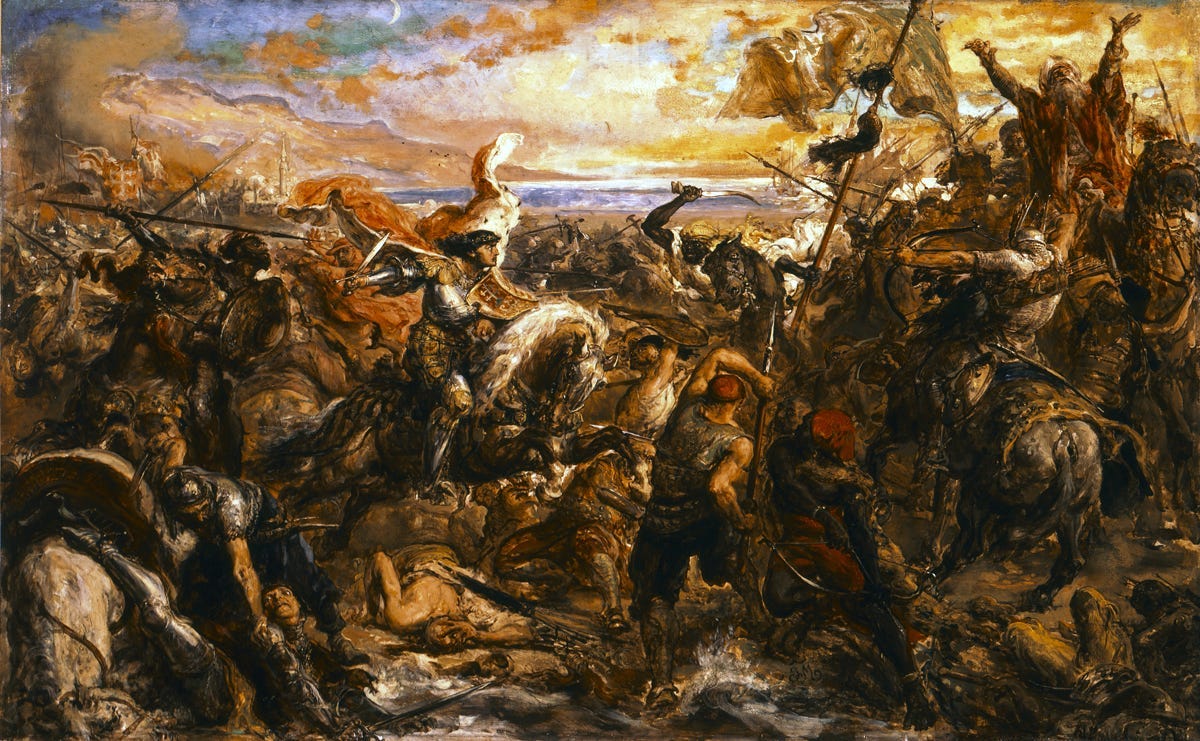TODAY IN HISTORY
November 10, 1444: The Ottomans, under Sultan Murad II, defeat a combined Hungarian-Polish “Crusader” army at the Battle of Varna in what is today Bulgaria. Murad was called out of retirement by his army after having abdicated in favor of his young son, Mehmed II (who would one day be known as “Mehmed the Conqueror” but not just yet) to lead them against the Crusaders, who were threatening an advance on Constantinople. The victory was not overwhelming—the Ottomans lost so many warriors that Murad initially wasn’t sure they’d won the battle—but the death of Polish-Hungarian ruler Władysław III/Vladislaus I shattered their alliance and the Crusade, ending the threat it posed to the Ottoman Empire.

November 10, 1659: The Maratha leader Shivaji and his outnumbered army defeat the Adilshahi under Afzal Khan at the Battle of Pratapgarh. It was the first major victory Shivaji would win over a Muslim kingdom, but it would definitely not be the last. His kingdom grew rapidly in the wake of the battle and became the nucleus of the Maratha Empire, which subjugated the Mughal Empire in the middle of the 18th century and became India’s dominant political entity until it was defeated by the British East India Company in the early 19th century.
MIDDLE EAST
SYRIA
Syrian President Ahmed al-Sharaa visited the White House on Monday, marking a milestone both for Syrian heads of state and (ex) al-Qaeda figures. I think Spencer Ackerman summed up the moment quite appropriately:
Very often I hear that Osama bin Laden won the War on Terror. That’s usually meant as a way of saying that the U.S. lost a war that was folly from the start. But bin Laden did not win, either; he lost control of his revolution and it ate its children. Bin Laden sought to rid the Middle East of American presence and influence. He absolutely did not seek for someone in his movement to welcome the presence of 2000 U.S. troops or shake hands with the president in the White House as a supplicant. The fullness of what’s happening today will reveal itself in time. But for now, al-Sharaa’s Oval Office summit looks like the War on Terror version of the last page of Animal Farm, with man and pig ready to do business, unencumbered by the weight of their history.
Peculiarly, or maybe not so peculiarly given the baggage, Donald Trump did not greet Sharaa upon arrival as is typical for visiting leaders, but the two did meet in the Oval Office along with several US and Syrian officials. The Trump administration announced a new six month waiver of most Caesar Act sanctions on Syria (excluding transactions involving Russia and/or Iran) to mark Sharaa’s arrival. It probably would have preferred to announce a full repeal of those sanctions but the US Congress seems a bit reluctant to take that step just yet. Sharaa spent part of his weekend in Washington lobbying friendly legislators to push for a repeal.


